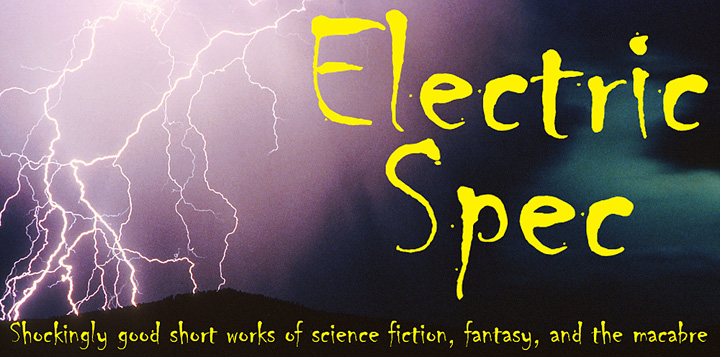| Volume 3, Issue 3, October 31, 2008 | |

| Spec Fic in Flicks: The Quiet Earth by Marty Mapes of Movie Habit |
A last-man-on-earth vibe is in the air these days. Between reading The World Without Us in paperback and renting I Am Legend on Blu-Ray, try to make room for an unassuming but worthwhile movie from New Zealand called The Quiet Earth. The Quiet Earth was one of the first science fiction films I saw as an impressionable teenager. I was enamored of the very idea: how might humanity disappear, and what would you do if you were left? I was impressed by how much could be done with the concept. For example, property crimes wouldn't exist; you could take what you like and live like a millionaire. On the other hand, with no culture, maybe you'd stop trying to keep up appearances and revert to a more primitive state, materialism be damned. I decided to revisit The Quiet Earth to see whether it holds up to adult scrutiny. It does, but it's a very different movie from the one I saw when I was a nerdy teenager. If you'd asked me then what it was about I'd have told you that it's about having the world to yourself and trying to figure out how the universe had changed after a strange accident. This time, I'd say that The Quiet Earth is primarily about sex and power. Zac (Bruno Lawrence, who also co-wrote the screenplay) is our last man. He wakes up one morning to find that people have simply vanished. Coffee is left boiling, cars have crashed in the streets, and seatbelts are still buckled, but there is no sign of people. The movie takes a satisfyingly long time to let Zac's reaction play out. Surprise turns to calm determination. He takes over the radio station, paints billboards, and drives around with a P.A. system. Determination becomes inspiration--everything is free for the taking, so why not move up a tax bracket or two? The high life finally gives way to desperation and then, finally, acceptance. That's when the movie introduces the first wrinkle (spoilers ahead!). Her name is Joanne, and after a rocky start, she and Zac begin the courtship ritual that will turn them into Adam and Eve. Once their relationship reaches stasis, the film introduces the third character, Api, a Maori man who unbalances the symmetry in the world. The rest of the film becomes an unspoken battle of wills between the two men. Jane Goodall might have observed that they were fighting for the alpha position and the right to mate with the female. As an adult, I found this power play the most prominent and interesting aspect of The Quiet Earth. Class, race, seniority, and youth all play a part in the power struggle. Zac was with Joanne first, of course, but not all human relationships are permanent. Api is younger, healthier, and possibly a better fit for the role of Adam. But the movie reminds us that these characters are from our own world, and it posits that they can't let go of their old status. Zac is of European descent, while Api is a brown-skinned New Zealand aboriginal. Zac is an educated man, a scientist (who worked in the laboratory that may have caused "the phenomenon"), while Api is a blue-collar drifter. Senses of superiority and resentment simmer below the surface, only rarely boiling over into the characters' consciousness and conversations. The movie seems to subtly take Zac's side in all this. Twenty years ago, when I was a smart but unpopular teenager, I found the movie's position reassuring and vindicating: brains are more important than brawn. But as a progressive adult, the notion of an educated white man having some greater right to The Girl than an uneducated brown man is backward and repulsive, especially because it treats Joanne like a prize rather than a person. Then again, the movie shows the survivors becoming increasingly primitive. Perhaps the movie is saying that when civilizations collapse, primitive notions resurface, whether we like it or not. Ironically, Zac knows that he is not at the apex of the pecking order. Twice he explains that he was just a technician in a small lab in New Zealand. "It was the Americans!" he repeats, who really had the power. If an American bureaucrat were to appear, however, Zac would probably not only cede the alpha role, but also try to curry his favor. The "last man" genre gives smart authors and filmmakers so much to work with that it's sure to keep resurfacing. Perhaps in another 20 years I'll revisit The Quiet Earth and write about how it's a Buddhist movie about death, rebirth, and Karma. The film will probably hold up that long. Whether it will last until only one of us walks the Earth remains to be seen. Read the article in another format:
| |
